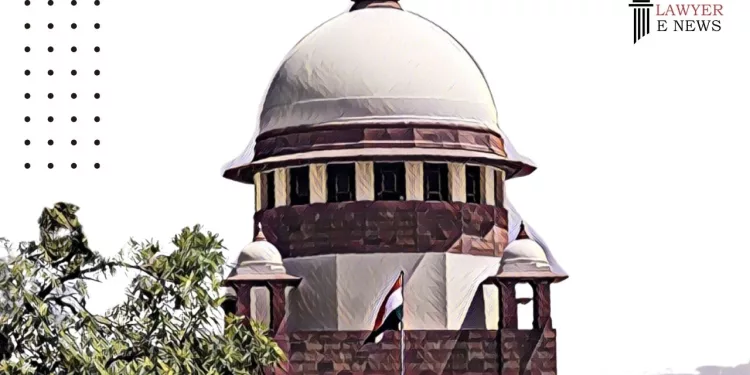Landmark Judgment Emphasizes “Constructive Res Judicata” Principle, Sets Precedent for Legal Proceedings

In a groundbreaking legal pronouncement, a recent judgment has reaffirmed the principle of “Constructive Res Judicata” in the realm of Indian jurisprudence. The decision, delivered by a bench presided over by Justice K.V. Viswanathan, carries significant implications for the legal landscape and the conduct of future legal proceedings.
The judgment, rendered on [Date of Decision], delves into various facets of the law while referencing an array of relevant legal provisions and precedents. The verdict cited the Master Circular dated 29.01.1991 and drew from the seminal case of Henderson vs. Henderson, (1843) 3 Hare, 100, to elucidate the core tenets of the “Constructive Res Judicata” doctrine.
In its deliberations, the court referred to Section(s), Acts, Rules, and Article(s), including the Master Circular, and the case of Maharashtra Vikrikar Karamchari Sangathan vs. State of Maharashtra and Another, (2000) 2 SCC 552. Additionally, the judgment made a noteworthy citation of the precedent-setting case of Smt. Jayasree Deb Roy (Dutta) vs. Union of India and Ors. (C.A. No. 9424 of 1995) and M. Nagabhushana vs. State of Karnataka and Others, (2011) 3 SCC 408, among others.
The concept of “Constructive Res Judicata” holds that not only should a matter that has been directly adjudicated upon be considered settled, but also those matters that should have been raised and decided in the previous litigation. This doctrine aims to promote finality in legal proceedings and prevent parties from re-litigating issues that have already been considered.
The judgment, while emphasizing the significance of this doctrine, underscored its application in a broader context, thereby setting a crucial precedent for legal proceedings in India. The court’s observation that “Constructive Res Judicata promotes judicial economy and upholds the sanctity of prior judgments” has been hailed as a guiding principle for future litigation.
Legal experts have lauded this judgment for its meticulous analysis of precedent and its potential to streamline legal proceedings. Ms. Uttara Babbar, learned counsel for the appellant, expressed satisfaction with the court’s ruling, stating, “This judgment reaffirms the principles of finality and fairness in legal proceedings.”
Mr. Nachiketa Joshi, learned counsel for the Union of India, also welcomed the decision, highlighting its potential to reduce legal disputes and enhance the efficiency of the judicial process.
In conclusion, this landmark judgment serves as a significant milestone in the development of Indian jurisprudence, reaffirming the principle of “Constructive Res Judicata” and providing valuable insights for the legal fraternity.
Date of Decision: 20.Sep.2023
Samir Kumar Majumder vs The Union of India & Ors.





